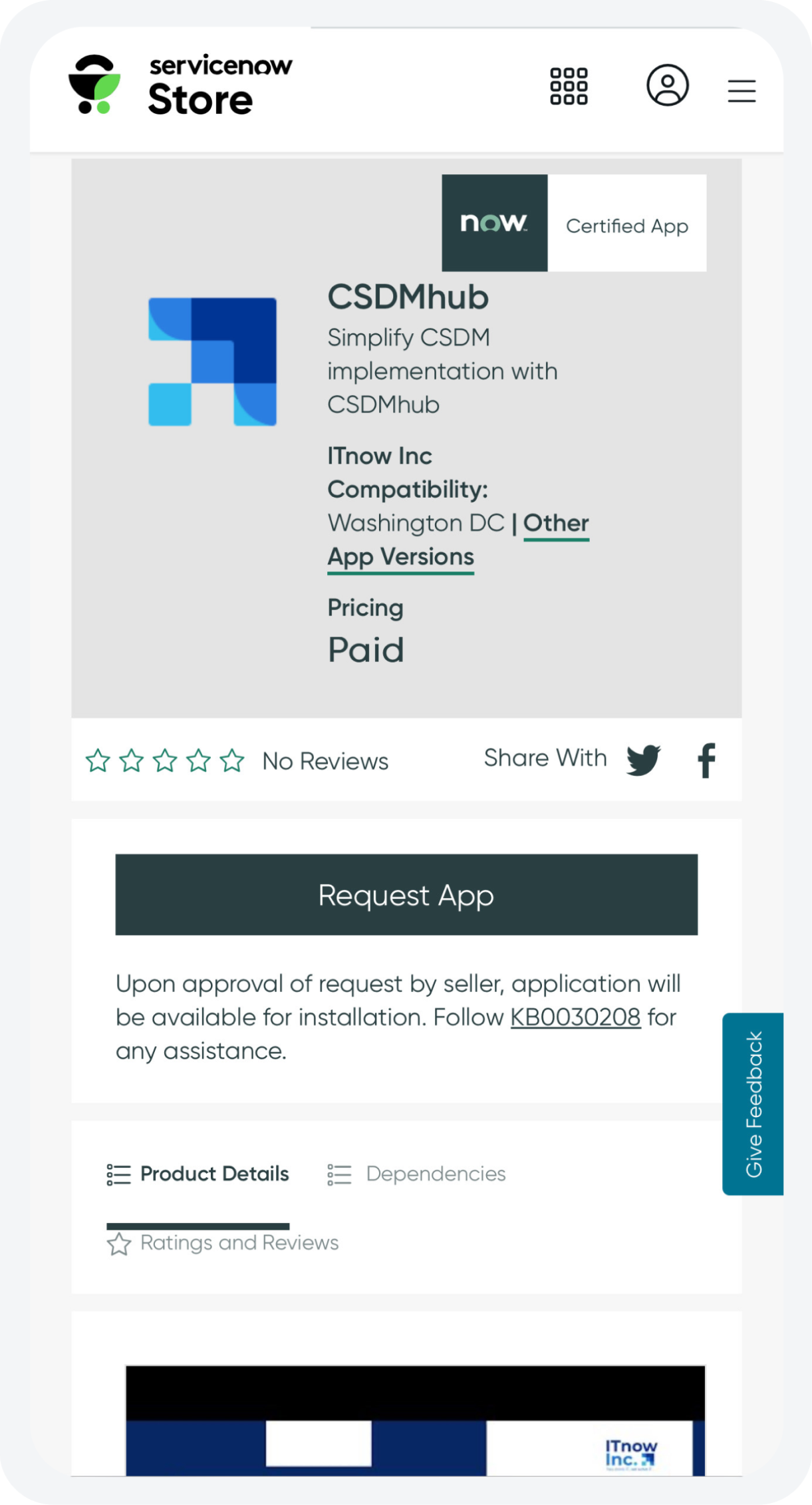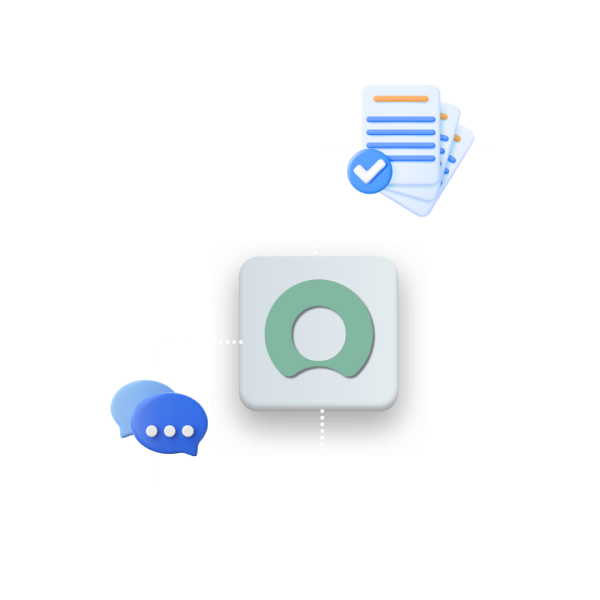CSDMhub helps reduce time and automate processes which gives companies efficient workflow setup.
reduction in Incident Escalations, Increases the Visibility and Service Level Actions
What are CSDM 4.0 Domains
Foundation
Design
Build
Manage Technical Services
Sell/Consume
Data Value
Foundation
Foundation
The Foundation domain comprises the tables housing fundamental data referenced by or linked to objects in other CSDM domains. This foundational data must be established before utilizing ServiceNow products or adding data to the CMDB. This includes the essential reference data as well as the foundational information such as users, support groups, and locations is necessary before implementing ServiceNow products.
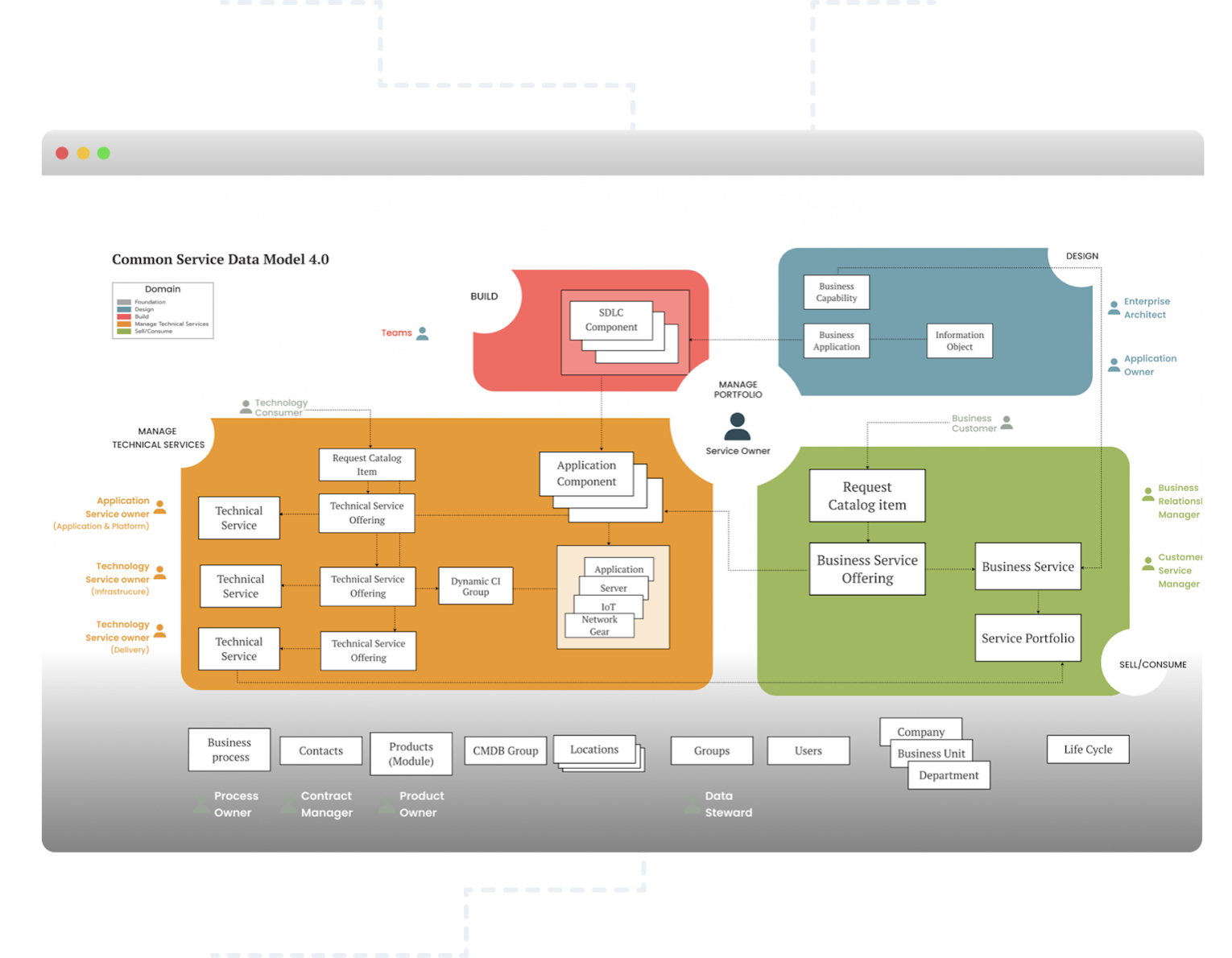
ServiceNow Store

CSDMHub
One Stop Shop
The fastest and simple way to generate growing business solutions with our products
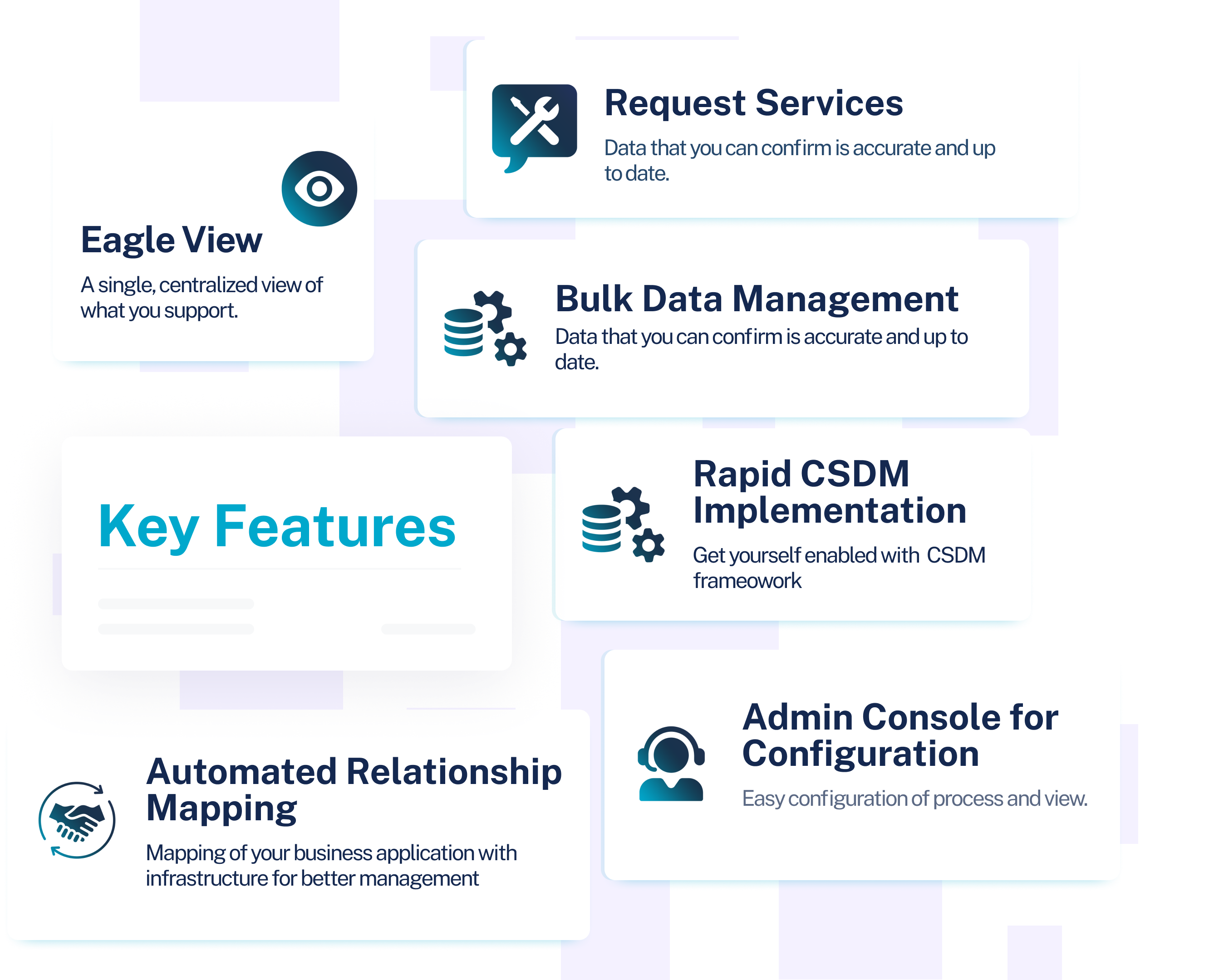
How Does the CSDM Model Work
The ServiceNow CSDM framework is a structured data model designed to uniformly organize and oversee IT assets, services, and various other business resources. Here's an overview of how the CSDM 4.0 model functions:
Data Visualization
ServiceNow provides a range of visualization tools including service maps, dependency views, and dashboards.
These tools help organizations visualize and analyze data in their CSDM instance.
They offer graphical representations of connections between IT assets and services.
This aids in quickly identifying dependencies, potential issues, and opportunities for improvement.
Data Integration
Enterprises can integrate data from ServiceNow modules, external systems, and third-party tools into their CSDM instance.
This integration process follows a standardized approach, ensuring consistent data mapping and normalization.
By combining data from different origins, enterprises can simplify data management.
The standardized approach also enhances the efficiency of data analysis processes.
Data Management
The CSDM acts as a central hub for managing IT assets and services, including configuration data, lifecycle details.
Enterprises use the CSDM to automate tasks related to discovery, inventory, and configuration management.
It facilitates the monitoring of changes and incidents associated with IT assets and services.
By leveraging the CSDM, organizations streamline the management of their IT infrastructure.
Data Modeling
The CSDM data model defines standard classes, attributes, and relationships to represent different types of IT assets.
Key classes include Configuration Item (CI), Business Service, Technical Service, Location, Person, among others.
Enterprises can enhance the CSDM schema by adding custom classes and attributes to meet their unique business needs.
This flexibility allows organizations to tailor the data model to their specific requirements.
How can ITnow help with CSDM?
Our Approach

Where Applications are populated?
Application
Business Application
Application Service
Application
Application
An application refers to any deployed program, module, or set of programs intended to deliver specific functionality on a computing infrastructure. It encompasses the installed bits and bytes. The CMDB table for it is cmdb_ci_appl. It is utilized in Incident, Problem, Change (IPC) processes discoverable installation of code communicating via a specific port. It helps with the distinct deployment of an application on a particular host. Examples include Database Instances, Java, WebSphere, and Tomcat.
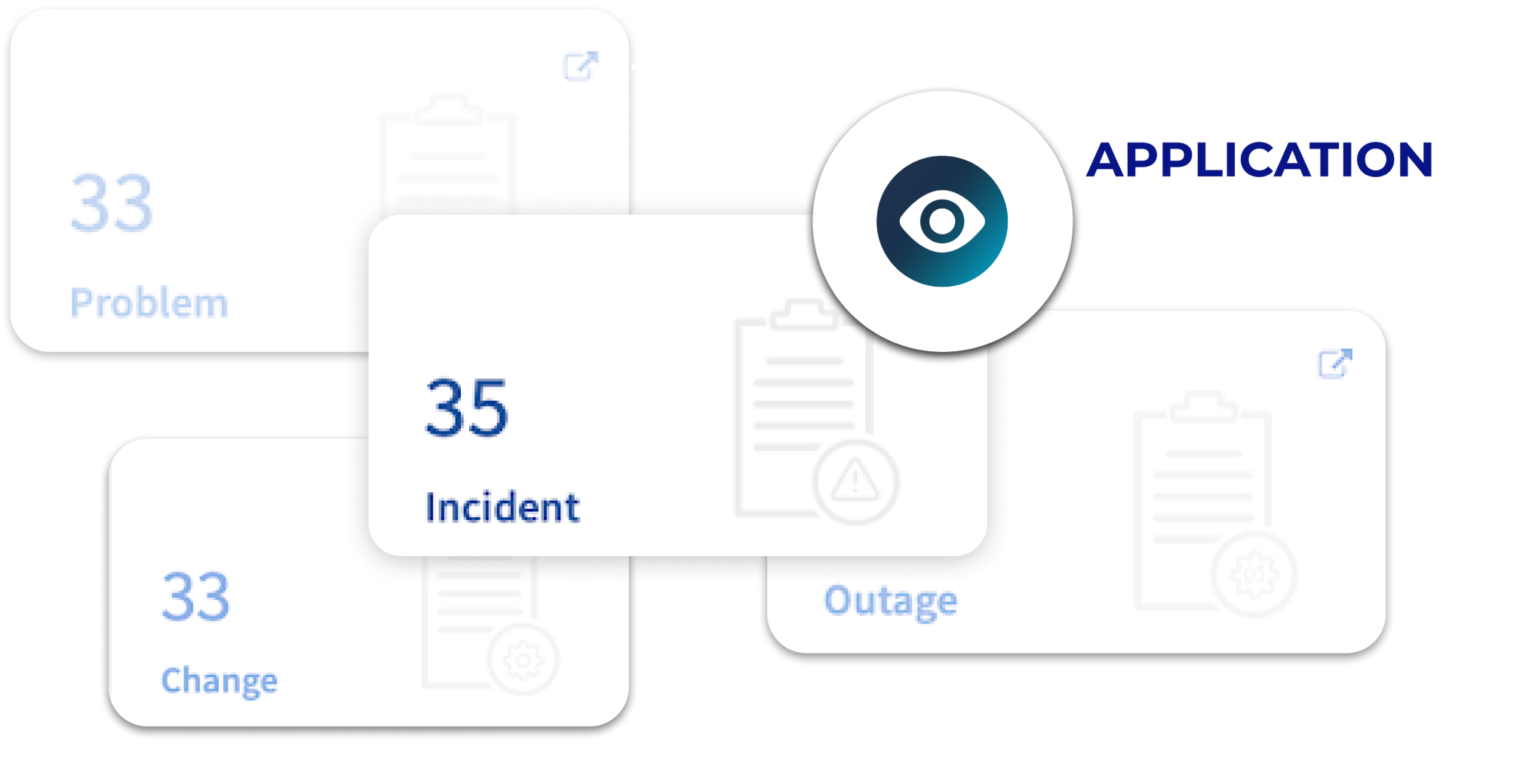
ServiceNow Store

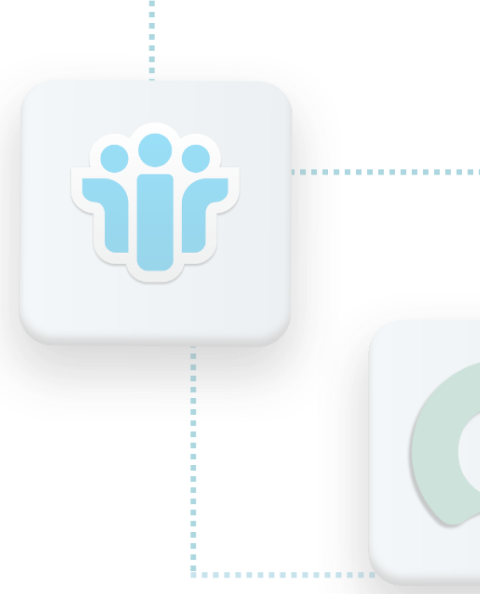
Know more about CSDM


Frequently Asked
Questions



